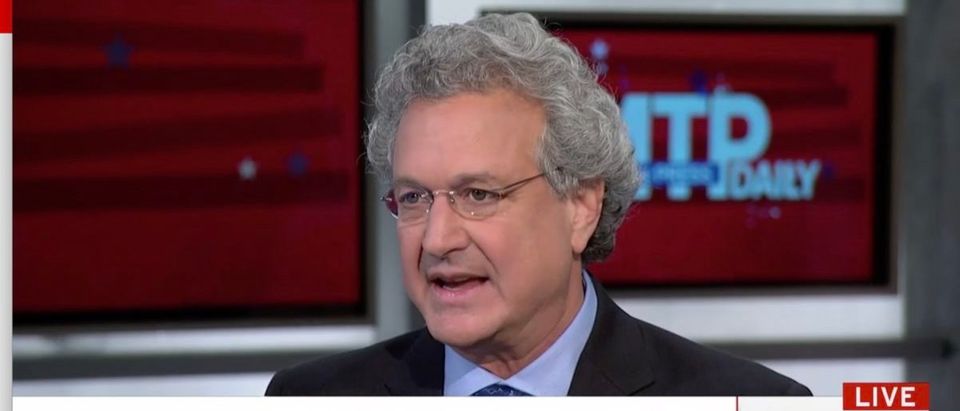It is virtually impossible for any journalist not to be aware of allegations made about the Southern Poverty Law Center (SPLC). Charges of institutional racism, sexual harassment of employees, malicious labeling of political opponents as “hate groups,” and unscrupulous fundraising practices date back more than 30 years.
Reports of the SPLC’s scurrilous private and public behavior have been reported by dozens of reputable journalists and published by news and opinion outlets as diverse as The Washington Post, The Nation, Harper’s, Politico, and many others. Just over the last few weeks, Twitter announced it was dropping the noxious SPLC as one if its “safety partners,” as it seeks to combat “hateful conduct and harassment” on its platform.
Nonetheless, as the Journal of Philanthropy questioned, “Why do so many reporters cite the SPLC blacklist as if it were some kind of neutral Consumer Reports guide to what’s intolerable in cultural advocacy?”
Okay, so maybe some of these reporters weren’t paying attention to what was being said and written about the SPLC last year, or five years ago, or 20 years ago. Well, how about last week, or last month? Beginning on March 14, the SPLC’s house of ill-repute in Montgomery, Alabama (dubbed the Poverty Palace by those who worked there), imploded. The SPLC’s founder Morris Dees was fired for what was vaguely described as “workplace misconduct.” Current and former employees were less circumspect – they called it sexual harassment.
Dees’ firing was quickly followed by the resignations of the SPLC’s long-time president Richard Cohen, and the legal director Rhonda Brownstein. They quit before they could be sacked. Meredith Horton, one of the few African-Americans in the upper echelons of the so-called civil rights group, quit for different reasons. Before she departed she wrote an email in which she “noted the hardships women and employees of color faced at SPLC.”
These firings and resignations were quickly followed by a letter signed by some two dozen SPLC staffers asserting “allegations of mistreatment, sexual harassment, gender discrimination, and racism threaten the moral authority of this organization and our integrity along with it.” Even more publicly, Bob Moser, a former SPLC staffer, published a 3,000-word insiders piece in The New Yorker affirming the ethical rot reported by those who looked closely at the SPLC from the outside.
No organization with a 30-year track record of unsavory public and private behavior, and facing current charges of racism and sexism from dozens of former and current employees, could still be considered a reputable news source, much less fit to evaluate the moral character of others, right? Apparently not.
Reporters who, until March 13, treated the SPLC as a “Consumer Reports guide to what’s intolerable in cultural advocacy” and reported their allegations against others as unimpeachable fact, might be excused as merely lazy, or not very good at their jobs. Those who have continued to repeat the SPLC’s slurs without independent corroboration of their veracity, are engaging in journalistic malpractice.
Those engaging in such malpractice are not just self-styled muckrakers for crackpot online sites. Rather, those who continue to report SPLC “hate group” charges against organizations advocating mainstream political views they don’t like, include outlets that claim to be honest and objective news sources.
These malpractitioners include Politico’s Ted Hesson; Bess Levin, who writes a daily column for Vanity Fair; Erin Corbett in Fortune; The News Service of Florida, which feeds state and local stories to news outlets across the state; and the editorial board of the Palm Beach Post. Even in the wake of the serious charges leveled against the SPLC, they continue to cite the SPLC’s opinions as authoritative, without so much as a mention of the group’s well-documented and ongoing troubles.
These reporters and news outlets do so for one simple reason: The SPLC serves as a useful proxy for inserting their personal and institutional biases into stories. And since there are no other sources they can use to impugn the credibility of groups that effectively advocate viewpoints they disagree with, they go on pretending that the SPLC is a legitimate arbiter of moral fitness.
It is hardly surprising that trust in the news media has reached historic lows in the United States. Many in the media have abandoned even the pretense of searching for the truth and have instead become active participants in the dangerous trend of attempting to silence those with whom they disagree. Citing the SPLC is incontrovertible proof.
Ira Mehlman is media director at the Federation for American Immigration Reform (FAIR), a nonprofit group that advocates for legal immigration.
The views and opinions expressed in this commentary are those of the author and do not reflect the official position of The Daily Caller.


